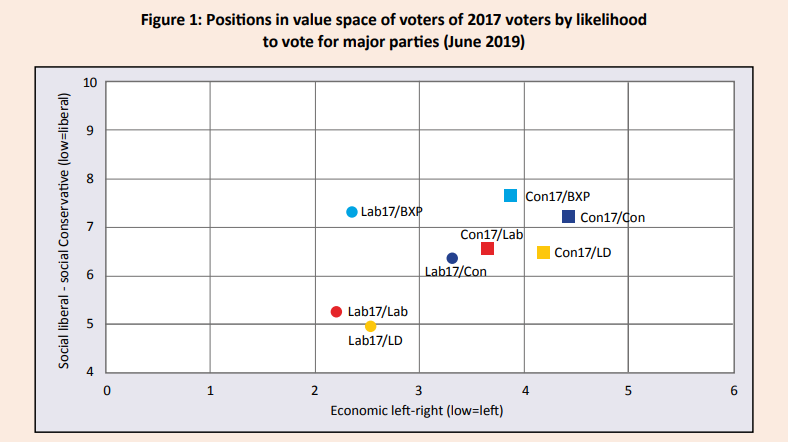
Deputy Director @ukandeu, Political Sociologist @spaisbristol Interested in political values, public opinion, elections, class and education.
How to get URL link on X (Twitter) App





https://twitter.com/UKandEU/status/1518568006116208640We don't have good data on local election turnout per se but using the @BESResearch panel I've looked at the group who voted at the 2019 general election but who did not do so in the 2018 locals



 For those with a degree or higher the pattern is more marked. Non-voters with degrees more authoritarian than voters with degrees.
For those with a degree or higher the pattern is more marked. Non-voters with degrees more authoritarian than voters with degrees. 


 For higher professional this is 35% Liberal, 17% moderate and 8% 'authoritarian'
For higher professional this is 35% Liberal, 17% moderate and 8% 'authoritarian' 
 We are reading so much into what 'Red Wall' and other voters think from the votes of < 1/3rd of voters who are far from a random sample of voters in a given area.
We are reading so much into what 'Red Wall' and other voters think from the votes of < 1/3rd of voters who are far from a random sample of voters in a given area.


 Some key points:
Some key points:
 They moved on average to a more liberal position in 2015 (as they gained liberal voters from LDs and lost socially Conservative voters to UKIP). This was further compounded in 2017. 2/3
They moved on average to a more liberal position in 2015 (as they gained liberal voters from LDs and lost socially Conservative voters to UKIP). This was further compounded in 2017. 2/3

 And there is also no evidence of the young being especially 'pro-welfare'. Those *with* degrees (or current students) are more pro-welfare than those without degrees (this effect seems a little weaker in younger age groups).
And there is also no evidence of the young being especially 'pro-welfare'. Those *with* degrees (or current students) are more pro-welfare than those without degrees (this effect seems a little weaker in younger age groups). 